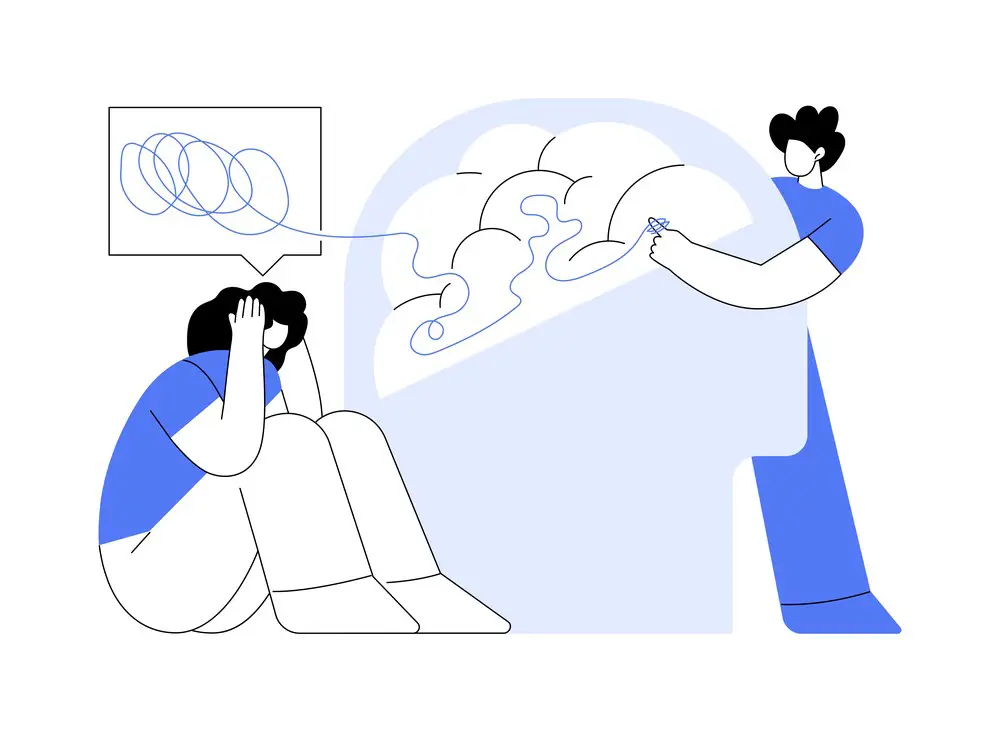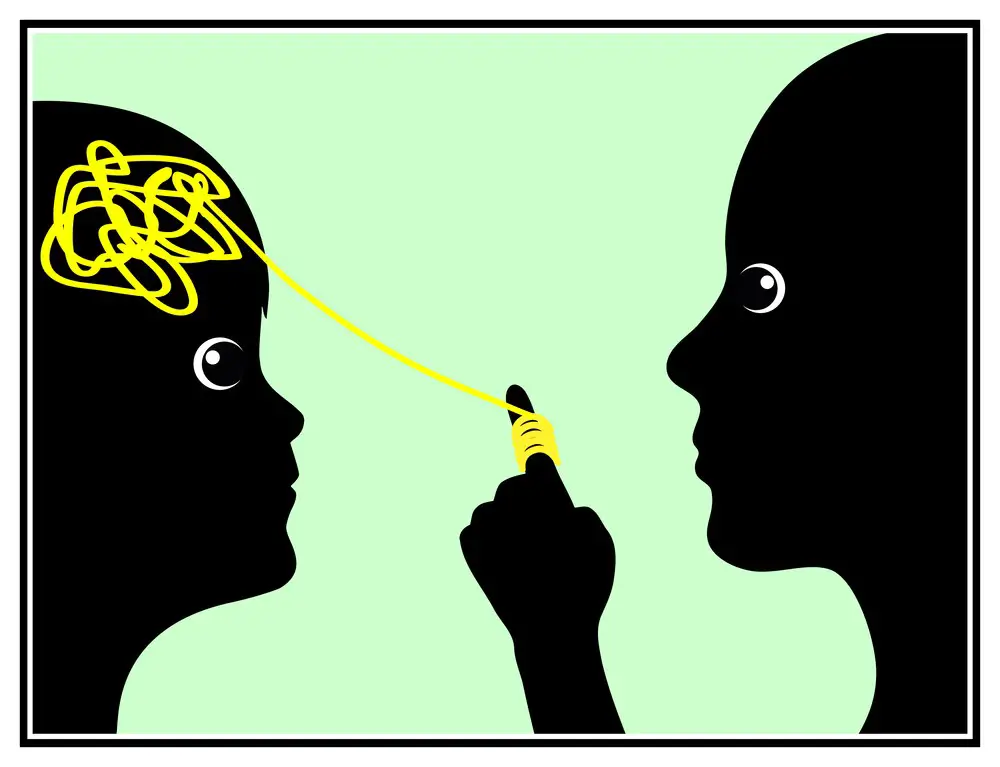As a BetterHelp affiliate, we receive compensation from BetterHelp if you purchase products or services through the links provided
Parents’ manipulation tactics have become an alarming issue as they can damage family relationships. Both parents and children must be able to cope with these manipulative behaviors to maintain positive and nurturing family dynamics.
It is crucial to recognize the adverse impact of these tactics, as emotional manipulation, gaslighting, guilt-tripping, and controlling behaviors can cause children to experience confusion, distrust, and low self-esteem that may have long-lasting effects. As a result, this can negatively impact their mental well-being and relationship with their parents.
Hence, it is imperative to have open and honest communication within the family to confront these tactics assertively. By acknowledging and addressing these manipulative behaviors, parents and children can work together to strengthen their bond and create a supportive, caring atmosphere for a happier home.
Understanding Parental Manipulation

Manipulation and Control
Parental manipulation is a behavior exhibited by some parents that aim to unfairly influence or control their child’s thoughts, emotions, or actions. Manipulative parents often use tactics to maintain power and control over their children, fostering a dependent relationship and making the child feel guilty or responsible for the parent’s emotional well-being.
Manipulative parents might use a variety of tactics to exert control, such as guilt, shaming, fear, and withholding affection. These tactics can cause long-lasting negative effects on a child’s psychological well-being and self-esteem and strain the parent-child relationship.
Behavior and Tactics
Some common manipulative tactics used by parents include:
- Emotional blackmail: Using emotions to guilt the child into compliance, often by accusing them of being selfish or uncaring.
- Gaslighting: Manipulating the child into questioning their memory, perception, or sanity by denying or altering the truth of a situation.
- Triangulation: Involving a third party, such as a sibling or spouse, to manipulate the child or relationships between family members.
- Withholding affection: Punishing the child by denying affection, attention, or approval when they do not meet the parent’s demands or expectations.
- Victimizing: Playing the victim to elicit sympathy or make the child feel responsible for the parent’s emotional state or problems.
It’s essential to recognize that not all parents who use manipulative tactics do so intentionally or maliciously. Some may have learned these behaviors from their upbringing and lack awareness of the harmful impact on their child. However, regardless of intent, parents and children must recognize and address manipulative behaviors within the family dynamic to promote healthier relationships and personal growth.
Common Manipulative Tactics

Gaslighting and Lying
Gaslighting is a form of psychological manipulation in which a person seeks to sow seeds of doubt, making the victim question their memory, perception, or judgment. It often involves the attacker questioning the victim’s reality, leading them to mistrust their thoughts and feelings. Lying, conversely, is a direct attempt to deceive someone by providing false information. Both tactics can damage victims’ trust and confidence in themselves.
- Gaslighting: Intentionally distorting a person’s reality through denial or misinformation.
- Lying: Providing false information with the intent to deceive.
Guilt-Tripping and Emotional Blackmail
Guilt-tripping involves inducing guilt or shame in someone to manipulate their behavior or decision-making. This tactic may involve blaming the victim for the manipulator’s feelings, problems, or emotions. Emotional blackmail includes making threats or using fear to control another person. Both tactics aim to evoke feelings of guilt and fear to force compliance.
- Guilt-Tripping: Manipulating someone’s emotions through guilt or shame.
- Emotional Blackmail: Using threats or fear to control another person’s behavior.
Silent Treatment and Love Withdrawal
The silent treatment involves ignoring someone or refusing to communicate to punish or manipulate them. This can lead to feelings of isolation and confusion for the victim. Love withdrawal is a form of emotional manipulation where affection or attention is withheld to gain control over a person’s emotions or behavior. Both tactics can leave the victim feeling unloved, rejected, and powerless.
- Silent Treatment: Ignoring or refusing to communicate as a means of control.
- Love Withdrawal: Withholding affection or attention to manipulate feelings or behavior.
Psychological and Emotional Effects
Impact on Self-Esteem and Identity
Emotionally manipulative parents often use tactics such as shaming or invalidating their child’s emotions to exert psychological control. This can lead to low self-esteem and a damaged sense of identity in the child. For example, a parent may use personal attacks, criticism, or aggression to make their child feel insecure about their worth, abilities, or appearance. As a result, the child may struggle with self-worth, empathy, and development.
Effects on Relationships and Social Life
Victims of parental manipulation may have difficulty forming healthy relationships and social connections, as they often carry the burden of their childhood experiences. This can lead to isolation, as they may struggle to trust others and feel shame when discussing their experiences. In some cases, siblings of manipulated children may perpetuate the damaging patterns they observed in their parents or treat the victim with similar contempt.
Depression, Anxiety, and Trauma
Children exposed to emotionally manipulative parents might experience symptoms of depression, anxiety, or trauma. The constant pressure from their toxic parent can overwhelm them, leading them to develop mental health issues. Additionally, they may start to self-harm or engage in other self-destructive behaviors. It is important to recognize the signs and symptoms of these conditions and seek appropriate help.
Parental manipulation can profoundly impact a child’s mental health and well-being. It is crucial to recognize the signs of manipulation and seek support for both the child and the parent to break the cycle and promote healthy, loving relationships.
Identifying and Addressing Parental Manipulation
Signs and Indicators
Identifying the signs of a manipulative parent is essential to address the issue effectively. Some common indicators of manipulative parents include:
- Exploiting family relationships or using triangulation to pit family members against each other.
- Consistently demanding, critical, or exerting excessive authority in parenting.
- Utilizing emotional manipulation tactics to instill stress, guilt, or fear in the child.
- Using trauma, past mistakes, or vulnerabilities to exploit power and control.
Recognizing these signs is crucial in addressing parental manipulation and seeking the appropriate support.
Seeking Support and Professional Help
Once the indicators of manipulative parents are identified, the next step is to seek support from trusted individuals or professionals. These resources can assist in providing guidance and advice to navigate the issue. Some options include:
- Discussing the situation with a close friend or family member to gain insight.
- Seeking help from a teacher or school counselor if the child is experiencing stress due to manipulative tactics.
- Consulting a therapist or professional counselor to work through the trauma and stress related to the manipulation.
Establishing Boundaries and Asserting Autonomy

Creating boundaries and asserting autonomy are essential strategies in addressing manipulative parental behavior. Some suggestions for establishing these boundaries include:
- Communicating personal limits and expectations to the parent.
- Identifying situations or relationships that should not be exploited or manipulated.
- Developing healthy coping mechanisms and strategies for managing stress and emotional responses.
Asserting autonomy is also crucial in overcoming manipulation tactics. It may involve:
- Making independent decisions and standing up for personal beliefs and values.
- Ensuring contact and communication with the parent are maintained at appropriate levels.
- Recognizing and valuing personal strengths and capabilities rather than relying on the approval or validation of the manipulative parent.
These steps can effectively address and navigate parental manipulation, leading to healthier and more balanced family relationships.
FAQs
- 3 Ways Wearing a Hat Can Help Lower Your Stress Levels - April 19, 2025
- Breaking the Silence: Why Men’s Mental Health Matters More Than Ever - April 15, 2025
- How to Transform a Home’s Patio Space into a Relaxing Space - March 23, 2025
This site contains affiliate links to products. We will receive a commission for purchases made through these links.



